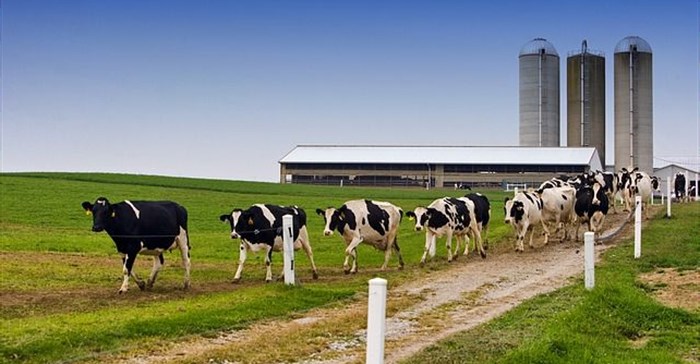On South Africa's Lancewood dairy farm, a GPS-guided tractor spreads cow manure across defined areas where tilling is banned and fertilizer used at a minimum, if at all.
Some 2,500 Jersey cows graze on a selection of plants, from chicory to lucerne (alfalfa), that have been planted for feed variety while helping preserve the soil's nutrients.
Lancewood is among 40 dairy farms where South Africa's first internationally certified carbon programme for the agricultural sector - known as AgriCarbon - is being piloted by Climate Neutral Group (CNG) to help curb greenhouse gas emissions.
Dairy farms have borne the brunt of criticism from environmentalists in the agriculture sector for releasing large quantities of methane and nitrogen that drive climate change.
"That's how we've worked – doing minimal till and reducing our nitrogen on the soil for many, many years and that's how we've reduced our costs on the farm to make the dairy very profitable," Lancewood owner Mark Rubin told Reuters on his farm in the Sedgefield area of South Africa's southern Cape region.
Sustainable development impact
Lancewood has, for example, more than halved its nitrogen use per hectare per year in 2022 from 2018, according to research consultancy Trace & Save.
Nitrogen in fertiliser can convert into nitrous oxide, a harmful greenhouse gas that can linger in the atmosphere for decades and is a better heat trap than carbon dioxide (CO2).
AgriCarbon, introduced in 2021, draws on farm-generated data to reward farmers who adopt better farming methods, such as reduced tilling. The first verified carbon credits will be sold later this year with a potential 230,000 tonnes up for grabs, targeting mainly European companies, CNG officials said.
The National Treasury is eyeing a domestic carbon credit market of 10 to 20 million tonnes of CO2 a year, and has set a baseline price of between 115 rand ($7.97) to R120 per tonne for 2022, less than the $15 to $25 potentially on offer for AgriCarbon credits.
"They are attractive on the international market because they are nature-based sequestration credits," said Gray Maguire, carbon project manager at CNG's South African unit.
CNG is considering similar type initiatives for an estimated 33 million smallholder crop and livestock farmers in sub-Saharan Africa, with potential projects eyed in Malawi, Morocco, Kenya and Zambia, Maguire added.
Poor regulatory frameworks, inadequate financing and technical expertise has seen Africa lagging in adopting Clean Development Mechanism (CDM) projects, with the region accounting for 2.9% of the total number of CDM projects worldwide, United Nations Environmental Programme data shows.
But the tide might turn for Africa after a new global climate deal was clinched in November setting rules for carbon markets.
"There is a reason for optimism for the continent with a lot more focus now on other attributes of the credits (other) than emission reductions, namely sustainable development impacts," Karen Olsen, senior researcher at UNEP's Copenhagen Climate Centre said.



































